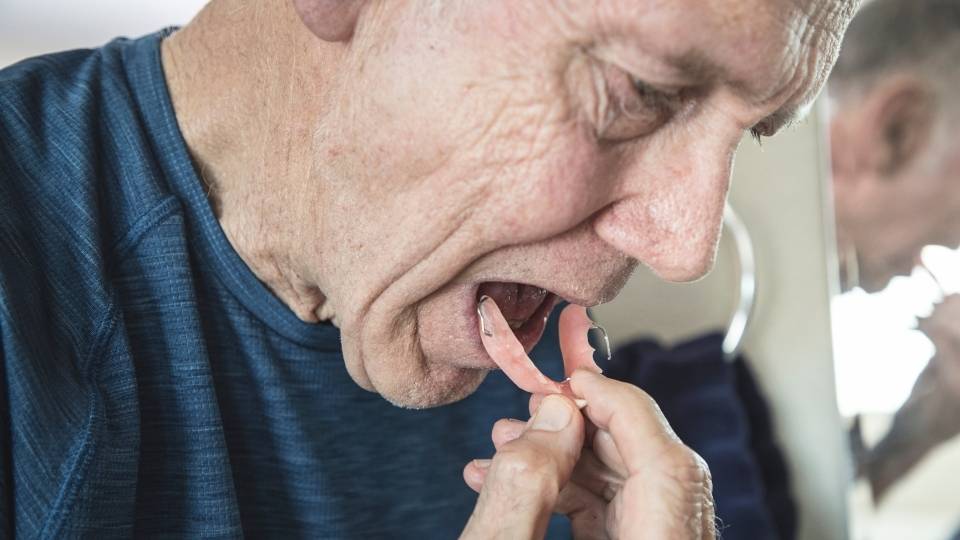
Can A Denture Make Eating Difficult?
Eventually, many denture wearers report being able to eat most, if not all, of the foods that they ate before. However, there is an adjustment process that needs to take place. Dentures are foreign objects, and the mouth and the brain need time to get used to the new sensations. Patients should try to take things slowly at first, eating foods that do not pose a particular challenge before returning to old habits.
Tips for Eating With Dentures
People with new dentures should first avoid particularly hard or chewy foods. Examples include raw vegetables, crackers, and red meat. Instead, people should initially stick with soft foods that do not require a lot of chewing:
- Scrambled eggs
- Cooked cereal
- Applesauce
- Mashed potatoes
- Pudding
- Yogurt
Foods like these can provide the necessary nutrients without stressing the jaw muscles or compromising the gums, which may still be tender after recently removing teeth.
New dentures can cause irritation or sores on the gums. These should eventually resolve with time, but spicy foods could cause stinging or burning and should be avoided. It is also essential to avoid holding liquids in the mouth while eating, or the bottom plate could become loose. Dentures can insulate the gums from extreme temperatures, so patients should test foods against the lips and avoid eating anything too hot.
Some patients report that they can no longer taste foods as before after first getting dentures. This is normal and usually temporary. There are so many new sensations in the mouth due to the dentures that the nerves get overloaded, and the taste of food gets lost in the shuffle.
Other Concerns About Dentures
New dentures can affect patients in other ways not directly related to eating. Dentures can cause the mouth to feel fuller than usual, with a sensation that the lips are protruding forward. This is a bloated feeling due to the newness of the dentures. Eventually, adjustment takes place, and the feeling goes away.
Patients sometimes notice the lower denture moving around or raising when speaking, sometimes accompanied by a clicking sound. The cheeks, lips, and tongue all have a role to play in holding the lower denture in place, but this skill takes practice. Speaking more slowly, at least at first, helps patients to learn how to use the muscles effectively while speaking to hold the lower plate in the mouth.
A new denture also changes how one perceives the sound of one’s speaking voice. It amplifies the sound of one’s voice in a way that one is not used to. However, other people barely perceive the change, if at all.
One may also notice increased saliva production in one’s mouth after receiving new dentures. This normal reaction to having a foreign object in one’s mouth will decrease with time.
